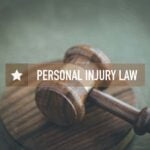Don’t Post About Your Car Accident on Social Media
Social media has been rampantly misused for spreading false information, spying on people and bullying. But did you know that a casual comment made by you on a social media site can come back to haunt you? This is especially true when you are suing or negotiating for personal injury compensation.
Your tweets, posts, comments and pictures on social media can make a huge difference to the restitution you receive. Make no mistake, the security settings of social media sites are no match to the tenacious efforts of investigators who are willing to go to great lengths to dig up dirt on plaintiffs.

What you say and post will be held against you in the court of law and across the negotiation table!
Compensation for personal injuries was designed as a remedial measure to make up for the physical and economic gaps created by the incident/accident that led to the physical and mental harm. The system was designed to offer fair and full compensation to the victims. Notice the use of the word “fair”, meaning that the compensation should be proportionate to the injuries.
One common way for the insurance companies to wiggle their way out of paying fair compensation is to discount or minimize the extent of your injuries. They won’t hesitate to use unfair means in an attempt to prove that you have been exaggerating your injuries. For instance, when you make simple, normal and innocuous statements like:
- “I am fine”, the defense can argue that, since you stated that you are fine, it simply means that you are not as hurt as you claim to be.
- “I crashed my car”, can be misconstrued as an admission of responsibility.
- “I am sorry”, will be built up as a statement of guilt and remorse for something that you have done.
Do you see where this is going? In fact, any social media post can be skewed by insurance companies to minimize their liability.
Social media information is used in the most baffling and creative ways possible. For instance, when the daughter of a plaintiff from Florida posted on Facebook about how the compensation awarded to her father would help pay for her vacation, her post was considered a breach of the confidentially terms of the agreement and the settlement was revoked.
Are social media posts even admissible?
In the State of Kansas, social media posts and pictures can be admitted in court to show the inconsistencies of the plaintiff. For example, if a person claims to have suffered from a debilitating neck injury, but then posts a photograph of himself or herself participating in a marathon or going water skiing, the picture can be used to tarnish the credibility of the testimony.
Normally, out-of-court statements are deemed hearsay and cannot be admitted as evidence in court. However, messages and pictures posted on social media and other sites by you, your family members, friends, colleagues and others, as well as location tracking/updates, which can prove inconsistencies in your statement may be considered an exception to hearsay laws.
Treading carefully on social media sites after an accident!
Your safest bet would be to take a hiatus from social media for a while. But if you do feel the need to post, here are 5 types of posts to stay away from:
- Don’t express your emotions: As harmless as it may seem, do not make any statements or share your emotions on social media. They will come back to bite you! For instance, regardless of how sorry, sad or guilty you feel about the situation in general, keep those emotions in check when online. This way none of these expressions of sadness or grief can be used against you.
- Information on your health condition: You decided to spend an evening with your friends after an accident; nothing wrong there. But rest assured that the defense attorneys will argue that since you felt well enough to hang out with your friends, you must not be as seriously injured as you claim to be.
- Posts related to your current life: The truth is, many people choose to push through the pain to keep their plans they’d made before an injury. This is an attempt to return to normal life, even though many times injured people are not able to enjoy their plans in the way they had hoped because of the pain they’re experiencing. However, if you can imagine, posts that show even one picture-perfect snapshot of a weekend getaway, can undermine your credibility when you are claiming to be in physical pain and financial peril.
- Keep your anguish to yourself: You don’t have to post pictures or even make statements that tell the tale of your misery and anguish. The last thing you want to do is create the image of being a vindictive person who is suing more to exact revenge than to seek restitution for genuine injuries. Resist the temptation to post angry, resentful, and aggressive rants about the insurance company, defendant or anybody else.
- Accident information is not for public consumption: Do not post any information, pictures of the crash, or videos of any medical procedure that you have had as a result of the injuries sustained in the crash.
10 Security measures to protect your claim!
- Stay away from “friend of friends”. It is not unheard of for lawyers to friend one of the social media friends of the plaintiff just to get to the victim’s account.
- Make sure your tweets are no longer public.
- If you have already posted something that you believe can be used against you, take it down.
- Deactivate the location tracking and update feature in all the apps on your cellphone.
- Don’t accept requests for new followers and friends as long as you are involved in the litigation.
- Disable tagging on all sites. If you are tagged, do not comment on tagged posts.
- Disable check-ins for all social media and other sites.
- Do not follow or join new groups online.
- Do not like new pages, posts and pictures.
- Do not post any content that relates to physical activity, indulging in a joyful pursuit, travel, new purchases, etc.
Current and past social media posts can greatly complicate your personal injury case, unless you work with an attorney who will protect you and aggressively challenge any attempt to misuse and skew this information. At DeVaughn James Injury Lawyers we know exactly how to combat insurance companies that try to misuse your information in the hopes of finding something that can be used to their benefit.
Contact us today and we will make sure that the insurance companies do not take undue liberties with your social media records.









